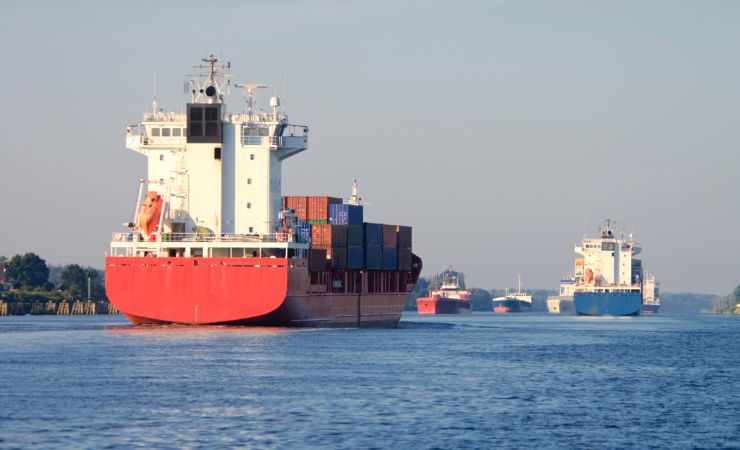Texas Maritime Laws – All You Need to Know
Maritime law is a unique area of law that involves many separate acts and pieces of legislation designed to protect workers who perform their job duties at sea. When you work on land, your state’s employment laws apply to your relationship with your employer, and each state enforces different workers’ compensation laws. However, maritime workers are typically not covered by workers’ compensation insurance. Depending on the nature of their work and the time they spend working at sea, it’s possible for various laws to apply if they suffer an injury at work.
When it comes to maritime law, it’s important to remember that while you may live in Texas and work for an employer based in the state, if you qualify as a maritime worker, then many Texas employment laws will not apply to you if you are injured at work. However, Stevenson & Murray is a team of experienced maritime injury attorneys, and our firm wants you to understand what to do if you sustain injuries in any maritime accident.
Understanding Maritime Accidents and Injuries
A “maritime accident” is any accident that occurs within a maritime operation. When such an accident occurs, the ship owner, captain, or owner of the business could face liability for the resulting damages. Some of the most commonly cited types of maritime accidents that generate complex legal proceedings include:
- Injuries from unseaworthy vessels. Any worker injured by their employer’s failure to maintain a seaworthy vessel faces liability for any and all resulting damages.
- Chemical exposure injuries, such as inhalation of harmful gasses and fumes. Many maritime workers must use or work near dangerous substances. If their employer fails to provide appropriate safety equipment, they face liability for resulting illness and injury.
- Longshore and shipping container-related injuries. Longshoremen face many risks at work, and specific maritime laws enforced at the federal level apply to these workers’ injuries.
- Injuries from explosions and fires. These incidents can be devastating for everyone involved, and injured workers will need experienced legal counsel to help them determine the cause of such an incident to hold the at-fault party appropriately accountable.
- Traumatic injuries from dangerous and/or defective equipment. Amputations and crushing injuries are possible in all types of maritime operations. As a result, victims face extensive long-term damages and will require experienced legal counsel to maximize their recoveries.
- Oil and gas drilling injuries. There are many inherent risks to working in oil and gas drilling operations, and employers in this industry sector must follow very strict regulations.
- Diving injuries. Commercial diving is an incredibly dangerous job for many reasons. Therefore, diving supervisors and employers of commercial divers must adhere to strict safety regulations to minimize the chance of injury to divers.
Whatever your recent maritime injury may entail, it is crucial to have experienced legal counsel on your side if you want the best chance of recovering as fully as federal maritime law allows.
FAQs About Texas Maritime Laws
Is Maritime Law the Same as Boating Law in Texas?
Operating a personal watercraft or small boat on any inland body of water is very different from working on a seaworthy vessel off the coast of the United States. Maritime law is a specialized body of laws that apply to maritime operations and nautical businesses. The employees of these operations are typically covered by maritime law if they are injured while working, and maritime law is upheld at the federal level. Texas’ boating laws pertain to the private use of watercraft on bodies of water within the state.
Can I File a Lawsuit Against My Employer for a Maritime Injury?
If you work in any maritime business and a substantial portion of your work duties are completed at sea, it is likely that you will be covered by the Jones Act if you sustain any injury while working at sea. There are separate federal laws that can apply to sailors injured while shoreside, and workers who solely work on land may be covered by their employers’ workers’ compensation insurance. If you are injured while working at sea, a maritime injury attorney can advise you as to what federal laws apply to your situation.
Are Longshoremen Covered by Maritime Law?
Longshoring operations involve the loading and unloading of shipping containers transported across the oceans. While working as a longshoreman typically involves land-based job duties, the Longshore and Harbor Workers’ Compensation Act (LHWCA) is a maritime law specifically designed to provide benefits to longshoremen injured on the job. If you are unsure whether you qualify to file a claim under the LHWCA or believe other maritime laws may apply to your situation, it’s vital to consult a maritime injury lawyer as soon as possible after an injury at work.
How Much Compensation Can I Receive for a Jones Act Claim?
The Jones Act allows the claimant to seek full “maintenance and cure” from a maritime work injury. “Maintenance” refers to living expenses they can no longer manage due to the inability to work, and “cure” refers to the scope of medical treatment they need to recover from their injury as fully as possible. The claimant also has the right to seek compensation for vocational rehabilitation or retraining in a new job if necessary, and some claimants will be able to seek compensation for their lost future earning potential if they cannot work at all because of their injuries.
Why Should I Hire a Maritime Injury Lawyer?
If you work for any maritime operation and suffer an injury at work, navigating the legal aftermath of this situation can be incredibly challenging if you do not have experienced legal representation advising you. Taking the time to find an attorney that is well-versed in maritime injury law and experience handling cases like yours can provide the best chance of recovering as fully as the law allows. Additionally, your attorney can significantly improve the final results you reach in your recovery efforts following a maritime accident.
The attorneys at Stevenson & Murray have years of professional experience in the complex field of maritime law. Our firm understands the challenges facing those injured while working in maritime operations and the many questions they often have when it comes to their recovery options. Contact us today to schedule a consultation with a maritime injury attorney for the best chance of recovering as fully as possible from your maritime accident.

Get Help Today
Request a Free Consultation
"*" indicates required fields


